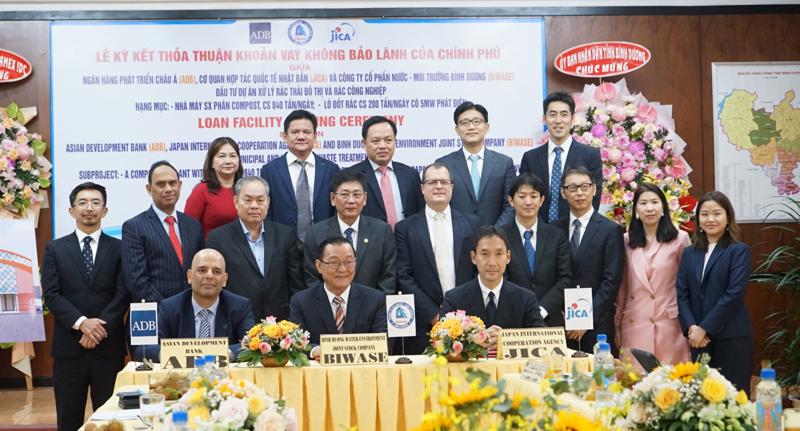The Asian Development Bank (ADB) and the Binh Duong Water Environment Joint Stock Company (BIWASE) have signed a $13 million loan to finance the construction and operation of a composting plant and waste-to-energy (WTE) facility in southern Binh Duong province.
The financing comprises $7 million from the ADB’s ordinary capital resources and $6 million from the Leading Asia’s Private Infrastructure Fund (LEAP), administered by ADB. It also includes parallel co-financing of $7 million from the Japan International Cooperation Agency (JICA).
The composting plant will have a processing capacity of 840 tons a day while the WTE facility will be able to process 200 tons of industrial and municipal solid waste a day to generate 5 MW of electricity for in-house use at the South Binh Duong Solid Waste Treatment Complex. Output from the compost facility will be sold as fertilizer for agricultural use.
“Vietnam’s rapid urbanization and economic growth has led to a sharp increase in municipal and industrial waste, and yet long-term financing for waste treatment plants remains a challenge,” said Ms. Suzanne Gaboury, Director General of ADB’s Private Sector Operations Department.
The project addresses the pressing need for efficient waste management in Binh Duong province, she went on, and provides a strong case for commercial lenders to consider future investments to make cities more livable and to develop ways of generating renewable energy that help tackle the causes of climate change.
Binh Duong province is one of the most rapidly-industrializing provinces in Vietnam, but this rapid growth generates large amounts of solid waste. In 2019, the province generated about 2,660 tons of waste a day; slightly higher than the global average. Industrial composting and WTE facilities can reduce rise volumes of waste going to landfills.
“A rapid increase in municipal and industrial waste in fast-growing parts of Vietnam is straining the country’s waste management system, and if unchecked could threaten public health,” said Mr. Ramesh Subramaniam, ADB Director General for Southeast Asia.
He added that the project supports Vietnam’s continuous efforts to improve its overall waste management system. It will provide a model for other cities and provinces and surrounding countries seeking to reduce waste through modern processing systems and to cut the amount of waste that ends up in landfill.
“The ADB has been a long-term partner in our work to support Vietnam’s water and sanitation priorities, and we look forward to working with the ADB again in this project,” said Mr. Nguyen Van Thien, Chairman of the Board of Directors at BIWASE. “This project shows international and commercial financers that Vietnam’s waste management sector is both feasible and attractive.”









 Google translate
Google translate